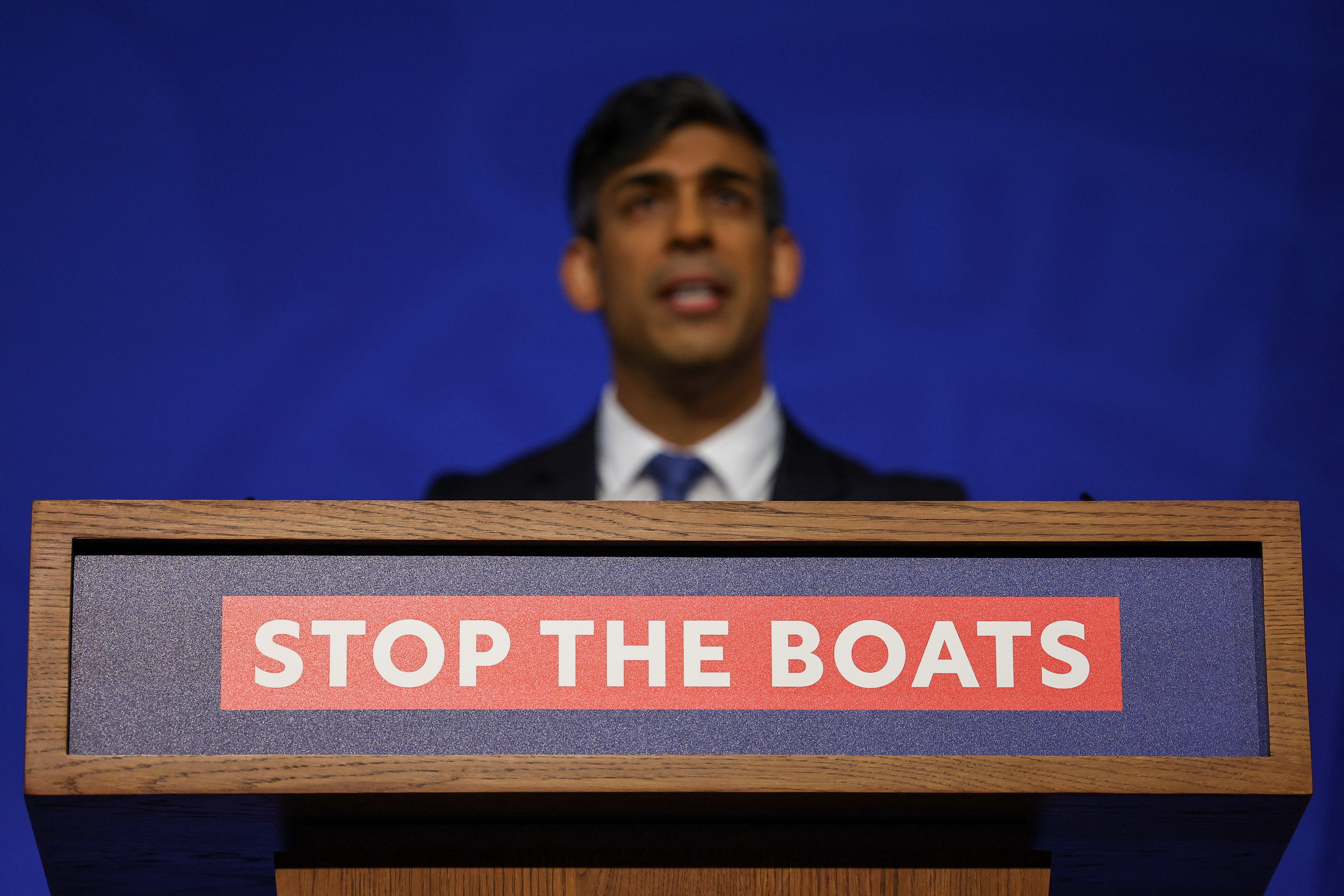I read The Independent’s recent editorial with great interest and agreement. This elaborate Rwanda charade just goes on and on, with very little to commend it.
It is becoming extremely expensive and fails to acknowledge that gangs will continue to smuggle desperate people across the channel unless directly challenged.
It might be argued that given the dire circumstances many migrants have often travelled from, including wars and punitive regimes, the Rwandan spectre will do nothing to deter those committed in their desire to reach these shores.
I agree that this scheme is immoral, gimmicky and not worth its ignominious place on the statute book. There should have been far more emphasis focused on safe and legal routes, as well as provisions for asylum seekers to have their claims determined in Europe by Home Office officials. Such a move could stop the infamous small boats trade in its tracks. Labour states that if it wins the election, it will scrap this scheme, but it must also look “outside the box” for a proactive solution. With the growing climate crisis, there will only be more and more refugees, desperate for sanctuary and far more countries, sadly putting the shutters up.
Judith A Daniels
Norfolk
Through the Looking-Glass
So, parliament has now taken a running jump down the rabbit hole and finds itself in a bizarre Through the Looking-Glass world. Rwanda is now “safe” because the Tory majority in the House of Commons has chosen to make an unsafe country “safe”. If Rwanda were truly safe, Rwandan citizens interviewed on the Today programme who were critical of their government, would not have had to remain anonymous for fear of reprisals.
The passing of the bill is a shamefully xenophobic blot on our country’s record, which will take decades to fade. The most sickening thing about it is the hypocritical pretence that it has anything whatsoever to do with concerns about the safety of the asylum seekers. They have been forced to resort to crossing the Channel in small boats because of an absence of any other way of getting to the UK to claim asylum.
David Brown
York
When will Sunak learn?
Yet again our PM continues to live in a world of his own as regards the Rwanda bill. When will Sunak realise that the bill is always likely to be ruled illegal?
Human rights campaigners are going to have a field day in the courts and threats of leaving the ECHR [European Convention on Human Rights] treaty have made our country a laughing stock on the world stage, too.
What’s more, the current bill insists that Afghans who worked for our armed forces and who put their own lives at risk for our country can also be sent to Rwanda. This is against military advice and goes against the pledges ministers made to support those who supported us.
Shame on the government and shame on the Conservative Party!
Geoffrey Brooking
Havant, Hampshire
Courting controversy
Why does Sunak not use his promised 25 court rooms, 150 judges and 5,000 sitting days to deal with the backlog of rapes and other criminal cases? Surely that would be a better way of using what he is always telling us are “very limited funds” at his government’s disposal?
I would much rather he spent the money trying to convict criminals, than trying to remove asylum seekers’ human rights.
Bob Sampson
West Sussex
More roofs over our heads
Housing stands as a pivotal issue in the election fray, given its correlation with economic stability. Recent upticks in house prices and mortgage approvals hint at recovery, yet the persistent housing shortage threatens a prolonged recession.
The UK faces a crisis of affordability due to insufficient homes for rent and sale, negatively impacting GDP. Decades of social strain persist with little resolution in sight.
In the next general election, each party needs to present a radical, yet credible, long-term plan to assuage market concerns. The Tory’s current target of 300,000 homes annually echoes long-standing government aspirations unmet since 2004. France’s surpassing construction efforts underscore the urgency, with many bodies estimating a need for 385,000 new homes yearly.
Four primary factors underpin this crisis: over-reliance on major housebuilders, politicised planning discouraging development, net loss of social housing, and post-Brexit labour shortages. Addressing these roots is imperative to alleviate the affordability crisis. Reinvigorating SME housebuilders is pivotal. Incentives should facilitate access to opportunities, including allocating small land plots for development and streamlining planning permissions for brownfield sites.
Boosting skilled labour domestically and reforming the planning system are equally crucial. Independent decision-making and private-sector assistance can expedite approvals and reduce costs. Prioritising social housing and incentivising brownfield developments are essential steps toward sustainable growth. Lenders must offer flexible financing to smaller developers.
Despite potential temporary unpopularity, a steadfast commitment to a pro-growth agenda is necessary. The unique challenges facing the UK demand decisive action. We need a party to embrace this opportunity and steer us toward a balanced and sustainable housing market, ensuring prosperity for generations to come.
Daniel Austin
London
Paying the price
Why are customers having to dig Thames Water out of their financial hole?
The government was too weak in imposing conditions for the running of the utilities after selling them off which allowed foreign organisations such as McQuarrie to take dividends without having to put in the sort of investment that was needed.
It’s them who should pay up – not the public.
Dennis Baum
London







Join our commenting forum
Join thought-provoking conversations, follow other Independent readers and see their replies
Comments